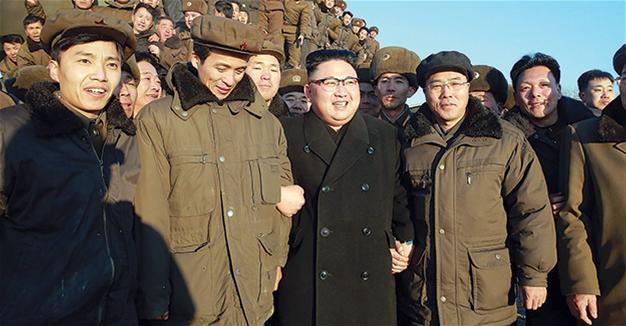Turkey condemns North Korea’s ballistic missile launch
ANKARA

Turkey’s Foreign Ministry on Feb. 12 “strongly” condemned North Korea’s test-firing a ballistic missile, which triggered a U.S.-led call for an urgent U.N. Security Council meeting after the launch was seen as a challenge to President Donald Trump.
“We strongly condemn the ballistic missile launch conducted by the Democratic People’s Republic of Korea (DPRK),” the ministry said in a statement, state-run Anadolu Agency reported.
North Korea’s leader Kim Jong-Un “expressed great satisfaction over the possession of another powerful nuclear attack means which adds to the tremendous might of the country,” state-run KCNA news agency said.
The missile was launched on Feb. 12 near the western city of Kusong and flew east about 500 kilometers (310 miles) before falling into the Sea of Japan (East Sea), the South Korean Defense Ministry has said.
“This launch constitutes yet another violation of DPRK’s international obligations. This is clearly not conducive to efforts aimed at assuring peace and stability in the region,” the Turkish Foreign Ministry statement read.
It called on DPRK “to cease its ballistic missile launches and other activities threatening regional and international security and stability.”
Photos released by KCNA showed the missile blasting into the sky with a smiling Kim watching from the command center, and standing on the launch field surrounded by dozens of cheering soldiers and scientists.
It said Kim “personally guided” preparations for the Feb. 12 test, which it described as a surface-to-surface medium long-range Pukguksong-2, a “Korean-style new type strategic weapon system.”
KCNA said the missile was powered by a solid-fuel engine, which requires a far shorter refueling time than conventional liquid fuel-powered missiles, according to Yun Duk-Min of the state-run Institute for Foreign Affairs and Security in Seoul.
“They leave little warning time and therefore pose greater threat to opponents,” he said, adding that such missiles were harder to detect before launch by satellite surveillance, AFP reported.
 Turkey’s Foreign Ministry on Feb. 12 “strongly” condemned North Korea’s test-firing a ballistic missile, which triggered a U.S.-led call for an urgent U.N. Security Council meeting after the launch was seen as a challenge to President Donald Trump.
Turkey’s Foreign Ministry on Feb. 12 “strongly” condemned North Korea’s test-firing a ballistic missile, which triggered a U.S.-led call for an urgent U.N. Security Council meeting after the launch was seen as a challenge to President Donald Trump.